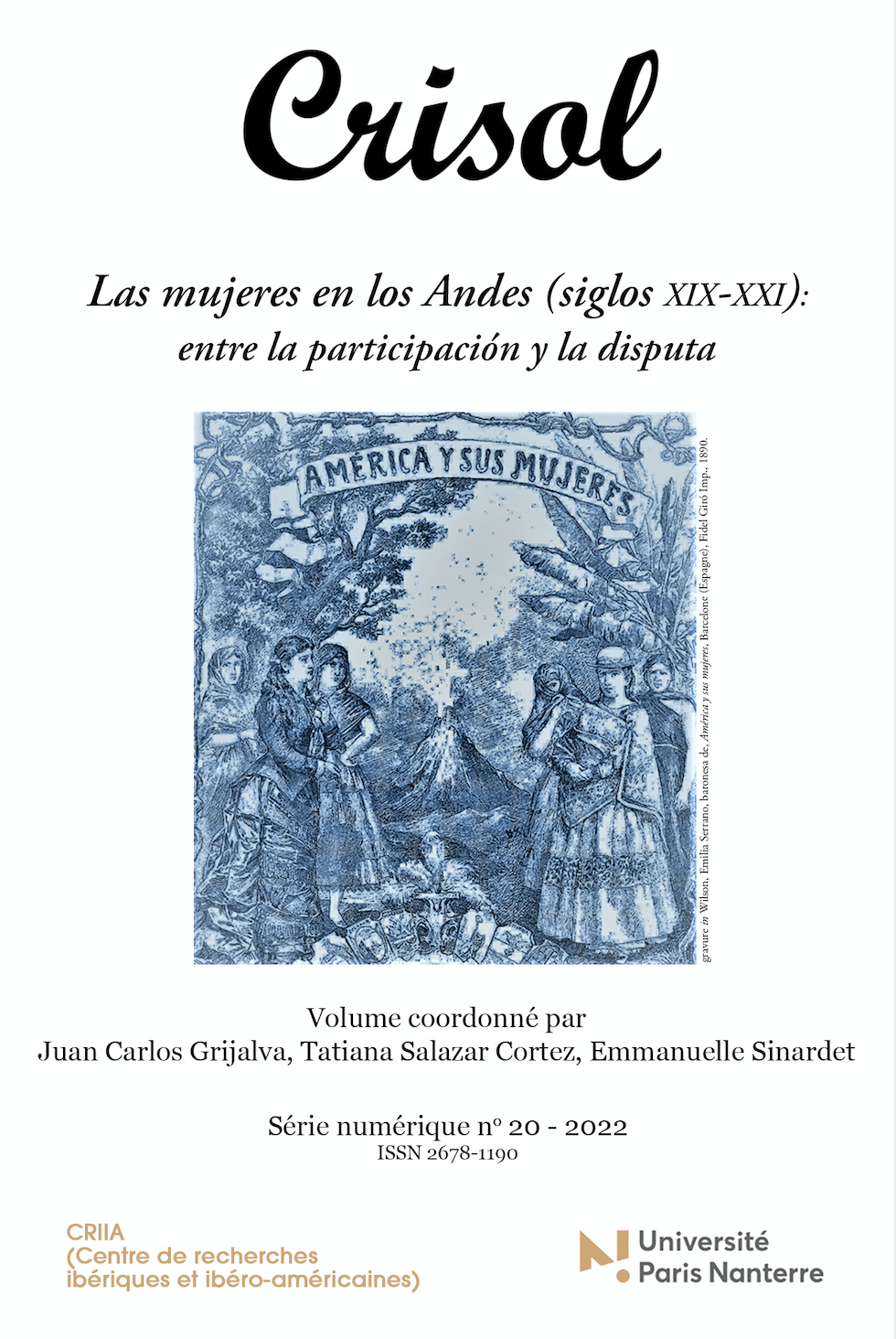“Ain’t I a Woman?” Poéticas de (re)existencia en algunas poetas afrocolombianas
Abstract
Cet article examine comment certaines poètesses afro-colombiennes, représentatives de la création poétique du XXe siècle, ont répondu à l’impératif ancestral de récupérer leur être précisément là où celui-ci leur a été nié. Ces poètesses ont compris la poésie comme un territoire qui leur est propre, duquel elles assument leur subjectivité et prennent la responsabilité de la signifier et d’en reconstruire les contenus, dans un acte d'autodétermination. Dans le sillage de Sojourner Truth et de Abuelo (Grand-père) Zenón, ces poétesses afro-colombiennes font leur une vérité incontournable : il faut désapprendre pour réapprendre.
Mots-clés : pédagogies de la (ré)existence ; diaspora ; insurrection ; race ; cri.
En este artículo se examina cómo algunas poetas afrocolombianas representativas de la creación poética del siglo XX han respondido al mandato ancestral de volver a ser donde no habían sido. Las poetas han comprendido la poesía como un territorio propio en el cual asumir su subjetividad y responsabilizarse por significarla y por reconstruir sus contenidos consta como un acto de autodeterminación. Con resonancias de Sojourner Truth y el Abuelo Zenón, la poesía de estas mujeresnegras parte de una realidad ineludible: hay que desaprender para volver a aprender.
Palabras clave: pedagogías de (re)existencia; diáspora; insurgencia; raza; gritar.
This essay examines how several twentieth-century Afro-Colombian women poets use their poetry to respond to the ancestral imperative of being again human precisely where their existence has been denied. The poets have understood poetry to be their territory where they can assume their subjectivity and be responsible for giving it meaning and for reconstructing their own content, all of which they understand as an act of self-determination. With echoes of Sojourner Truth and Abuelo Zenón, the poetry of these black women springs from one fundamental truth: one must unlearn in order to relearn.
Keywords: pedagogies of (re)existence ; diaspora ; insurgence ; race ; cry out.



